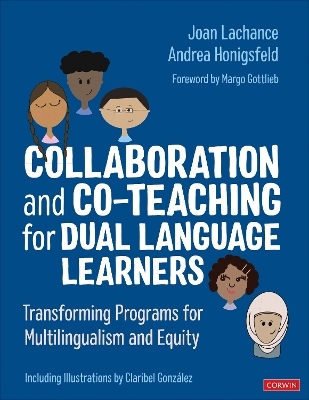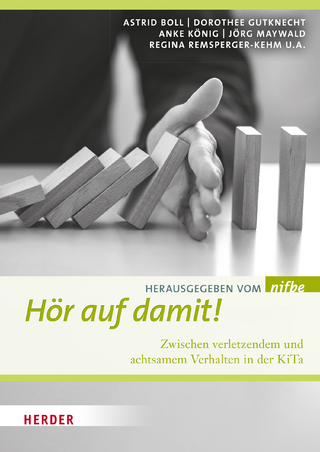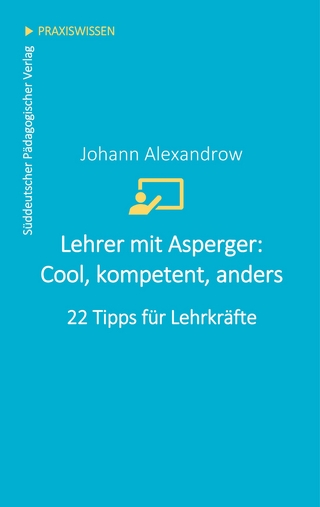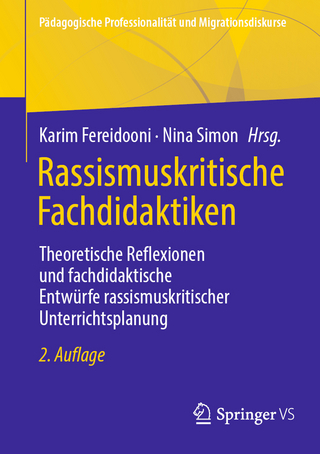
Collaboration and Co-Teaching for Dual Language Learners
Corwin Press Inc (Verlag)
978-1-0718-4999-6 (ISBN)
When implemented with commitment to collaboration, dual language programs work—and two teachers are better than one. Leveraging the power of teacher collaboration is the key to leading all your students to multilingual identity development and language, literacy, and academic success.
This practical book adapts a widely used, evidence-based collaboration and co-teaching framework specifically for educators in dual language contexts. Features include:
Special consideration to social justice and promoting critical consciousness
Viable options for schools, districts, and state education agencies to effectively support and expand dual language education
Seven proven co-teaching models, newly applied to elementary and secondary dual language environments
Templates and tools for collaborative curriculum alignment and implementation of dual language instruction
Authentic examples of success from collaborative dual language teams around the US and beyond
More and more schools are implementing dual language programs to serve multilingual learners. This first-of-its-kind innovative resource helps collaborating educators work together to design, deliver, and assess engaging instruction for multilingualism and multiliteracies.
Dr. Joan Lachance is an Associate Professor of Teaching English as a Second Language (TESL) at the University of North Carolina at Charlotte. She directs the TESL graduate programs and undergraduate TESL Minor. She is the co-author of the National Dual Language Education Teacher Preparation Standards and the Director of the CAEP Specialized Program Association in Dual Language Education called “EMMA: Education for a Multilingual Multicultural America.” She received her undergraduate degree in Secondary Education, Modern Languages and Linguistics from Florida International University. With Spanish as the language of program delivery, she completed graduate coursework to earn her master’s degree in School Counseling from Pontifical Catholic University in Poncé, Puerto Rico. Dr. Lachance completed her doctoral work in Curriculum and Instruction, with an emphasis on Urban Education, Literacy, and TESL at the University of North Carolina at Charlotte. Dr. Lachance’s research agenda encompasses dual language teacher preparation, academic literacy development, and authentic assessment with multilingual learners has resulted in over 25 publications including articles, book chapters, technical reports, and state-level curriculum guides since joining UNC Charlotte. She serves on several journal editorial boards and is a board member of the Multistate Association for Bilingual Education, Northeast (MABE). With the publication of her latest Corwin book she is specializing one aspect of her work further into collaboration and co-teaching for multilingual learners in the dual language context. She continues to work to support dual language education for the preservation of Native American languages, currently and most-honorably collaborating with a K-8 school serving the Eastern Band of the Cherokee Indians [EBCI]. In addition to her faculty position, Dr. Lachance’s service agenda has resulted in over 100 conference presentations, invited panels, keynotes, and roundtables to support the North Carolina Department of Public Instruction and the nation at-large. Her service specializes in professional learning for teachers, school counselors, and school administrators. She co-created materials and professional learning institutes for myriad North Carolina state-led initiatives including Using the WIDA Standards, The North Carolina Guide to the SIOP Model, The North Carolina Guide to ExC-ELL, and Dual Language/Immersion Program Support. The presentations, webinars, and asynchronous learning opportunities share innovative practices for multilingual learner academic language development, equitable active multilingual learner engagement, dual language program development, sociocultural nuances in school counseling, and international comparative education. For fun, Dr. Lachance enjoys camping [it’s really glamping!] with her husband Carl, their son, and their two rescue dogs. She is passionate about science, astronomy, the outdoors, hiking in the Blue Ridge Mountains, and the preservation of the Appalachian Trail. While she lives and works in North Carolina, she shares her heart deeply with New Mexico and, has a passion for the Native American Pueblo Languages, their ways of living, and everything Hatch green chilies. Finally, she is a former dual language parent, who reached the point of watching multilingualism come to life in her own home. Andrea Honigsfeld, EdD, is Professor in the School of Education at Molloy University, Rockville Centre, New York. Before entering the field of teacher education, she was an English-as-a-foreign-language teacher in Hungary (Grades 5–8 and adult) and an English-as-a-second-language teacher in New York City (Grades K–3 and adult). She also taught Hungarian at New York University. She was the recipient of a doctoral fellowship at St. John’s University, New York, where she conducted research on individualized instruction and learning styles. She has published extensively on working with English language learners and providing individualized instruction based on learning style preferences. She received a Fulbright Award to lecture in Iceland in the fall of 2002. In the past twelve years, she has been presenting at conferences across the United States, Great Britain, Denmark, Sweden, the Philippines, and the United Arab Emirates. She coauthored Differentiated Instruction for At-Risk Students (2009) and co-edited the five-volume Breaking the Mold of Education series (2010–2013), published by Rowman and Littlefield. She is also the co-author of Core Instructional Routines: Go-To Structures for Effective Literacy Teaching, K–5 and 6–12 (2014), published by Heinemann. With Maria Dove, she co-edited Coteaching and Other Collaborative Practices in the EFL/ESL Classroom: Rationale, Research, Reflections, and Recommendations (2012) and co-authored Collaboration and Co-Teaching: Strategies for English Learners (2010), Common Core for the Not-So-Common Learner, Grades K–5: English Language Arts Strategies (2013), Common Core for the Not-So-Common Learner, Grades 6–12: English Language Arts Strategies (2013), Beyond Core Expectations: A Schoolwide Framework for Serving the Not-So-Common Learner (2014), Collaboration and Co-Teaching: A Leader’s Guide (2015), Coteaching for English Learners: A Guide to Collaborative Planning, Instruction, Assessment, and Reflection (2018), Collaborating for English Learners: A Foundational Guide to Integrated Practices (2019), Co-Planning: 5 Essential Practices to Integrate Curriculum and Instruction for English Learners (2022). She is a contributing author of Breaking Down the Wall: Essential Shifts for English Learner Success (2020), From Equity Insights to Action (2021), and Digital-Age Teaching for English Learners (2022). Nine of her Corwin books are bestsellers.
Foreword
Chapter 1: Introduction
Chapter 2: Foundations of Dual Language Programs
Chapter 3: Collaborative Planning in Dual Language Programs
Chapter 4: Collaborative Teaching in Dual Language Programs
Chapter 5: Collaborative Assessment and Reflection in Dual Language Programs
Chapter 6: Leadership Support for Collaborative Practices in Dual Language Programs
References
| Erscheinungsdatum | 27.01.2023 |
|---|---|
| Verlagsort | Thousand Oaks |
| Sprache | englisch |
| Maße | 215 x 279 mm |
| Gewicht | 660 g |
| Themenwelt | Sozialwissenschaften ► Pädagogik ► Bildungstheorie |
| ISBN-10 | 1-0718-4999-9 / 1071849999 |
| ISBN-13 | 978-1-0718-4999-6 / 9781071849996 |
| Zustand | Neuware |
| Haben Sie eine Frage zum Produkt? |
aus dem Bereich


